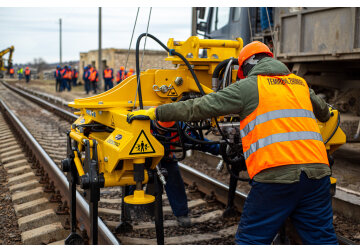
The European Commission will allocate a grant of 20 million euros to modernize the railway corridor Valcinet - Ocnita - Balti - Ungheni - Chisinau - Cainari.
This is stipulated by the government-approved draft ratification of the grant agreement between Moldova, the state enterprise Railways of Moldova (CFM) and the European Bank for Reconstruction and Development "RLF - Moldovan Railways Crisis Response", signed in Chisinau on June 27. The EBRD will provide Moldova with a 23-million-euro loan for the same purposes in two tranches. According to the authorities, the current technical condition of the railway infrastructure affects the speed of goods exchange, passenger transportation and the final cost of railway transport services. The reconstruction and modernization of the railway corridor will have a positive effect on the Moldovan economy, attracting new volumes of goods and increasing the number of passengers. This is due to the fact that after the completion of repair works, the speed of train traffic will be increased, certain restrictions will be removed and the time of train traffic will be reduced. Once this railroad infrastructure is repaired, it will be possible to negotiate new grants and soft loans for the purchase of rolling stock and rehabilitation of other railroad corridors. This will create positive prospects for fruitful development of relations in the railroad sphere. As InfoMarket reported earlier, the total cost of the project "RLF - Moldovan Railways Crisis Response" will amount to 71 million euros. To implement the project, the European Union will allocate an investment grant of up to 20 million euros, the EBRD - a loan of 23 million euros. In addition, the project will be co-financed with up to 28 million euros from the CFM/state budget. The project will support Moldova's economic development, enhance its logistics and transit potential, and improve operational efficiency by rehabilitating sections of the North-South rail corridor. The project will facilitate the transportation of goods via alternative routes from Ukraine through Moldova to the EU. The project aims to ensure food security and improve access for Ukrainian goods to the largest port on the Black Sea, Constanta, as well as to ports in Romania, Moldova, and Ukraine - Galati, Reni, Izmail, and Giurgiulesti - whose operational capacities can "absorb" a significant portion of Ukraine's export needs. The project supports a shift from high-carbon to low-carbon transport modes, as goods from/to Ukraine via Moldova are mainly transported by road due to capacity constraints on Moldova's North-Central rail network. // 29.11.2023 - InfoMarket







